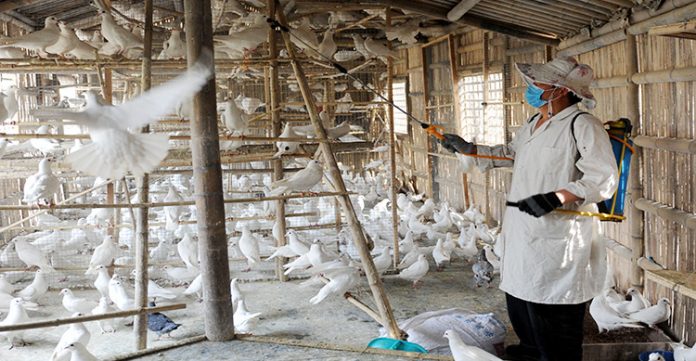Amidst the Covid 19 cases across the world, China has reported the first-ever case of bird flu strain, the H10N3 strain. The case was detected in the Chinese province of Jiangsu, China’s National Health Commission (NHC) reported.
H10N3 Virus Is Of Avian Origin
NHC confirmed the case via their website. The case is detected in a male aged 41 in Zhenjian in the easter part of China. The patient got infected from the poultry. However, the NHC informed that the risk of spreading of the this virus is pretty low. They also said that the this case is only one of a kind and hasn’t been reported anywhere else in the world.
ALSO READ:-World’s first case of human infection with H5N8 bird flu strain reported in Russia
The Chinese Centre for Disease Control and Prevention (CDC) conducted a series of tests on a blood sample from the patient. Following which they confirmed that the patient was infected with H10N3.
Furthermore, the local authorities have traced the people who came in contact with the patient. And they have put them under medial observation. The NHC statement further added that the experts have assessed a complete analysis on the virus and came to the conclusion that H10N3 is of avian origin.
Experts Advice Avoiding Contact With Live Birds
As per the latest reports, experts have advised the people in the region to avoid contacts with sick and dead poultry. Furthermore, they should also avoid contact with live birds. The NHC has also advise to take care of the food hygiene, wear face masks and improve self-protection awareness and keep a check on fever and respiratory symptoms.
However, this isn’t the first case of avian influenza in China. In February this year China reported an outbreak of the H5N8 avian influenza in Lianyungang which is a coastal city in the eastern province of Jiangsu.
H5N8 is a subtype of the Influenza A virus (also known as the bird flu virus). While H5N8 only presents a low risk to humans, it is highly lethal to wild birds and poultry.







